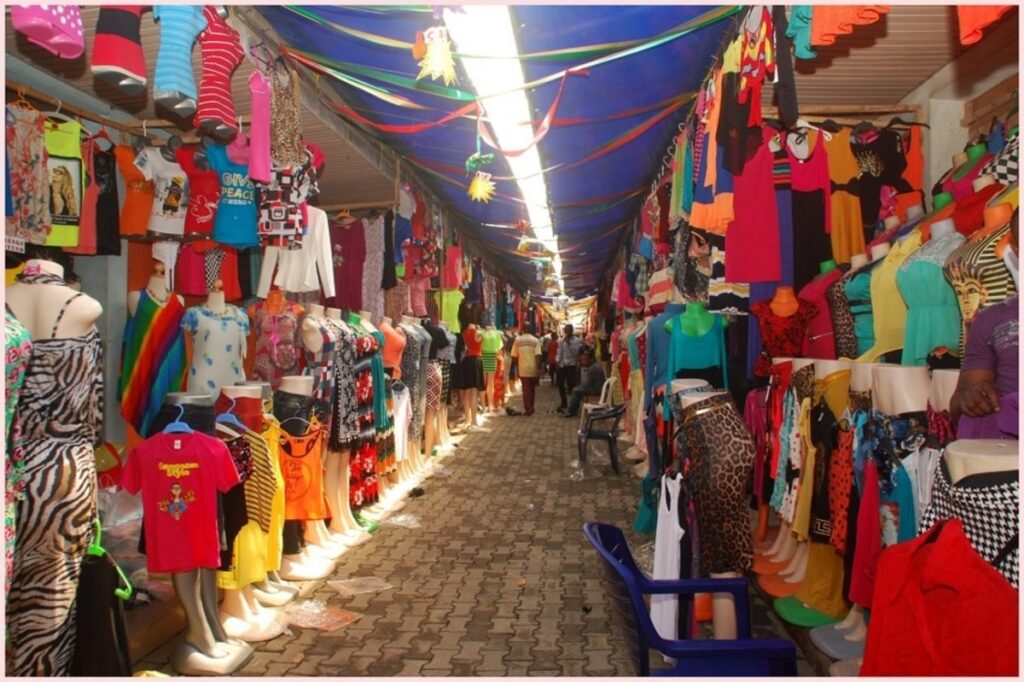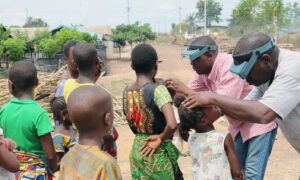BY CHIJIOKE OKORONKWO
The catch-lines “Aba-Made” and “Made in Aba”, no doubt, are household expressions in Nigeria, depicting Aba’s craftsmanship and manufacturing prowess.
From textile to leather products (shoes and bags), cosmetics, trunk box, steel fabrications, among others, Aba has carved a niche for itself as a commercial and industrial hub.
Daily, businessmen from across Nigeria, West Africa and other parts of Africa throng Aba to make wholesale purchases of a wide range of goods.
Data from INSIGHT NOTE-A Kwakol Research Publication indicates that Nigeria’s shoe industry’s developments are mainly influenced by the Aba clusters.
The data shows that Aba shoe hub is valued at more than N120 billion, producing more than a million shoes each week and more than 48 million pairs annually.
“The Aba shoe hub houses over 100,000 entrepreneurs and contributes 50 percent of the total supplies in West Africa.
“Currently, there are more than 200,000 entrepreneurs and more than 30 firms producing shoes in different locations in the country’’.
The Aba Fashion Week 2024 (street fashion) which showcased an array of exquisite and eye-popping designs and collections was a veritable testament to Aba’s grassroots creativity.
Regrettably, in past years, Made in Aba products have been rated lowly in comparison with imported products chiefly due to compromised quality, inferiority complex or sheer consumer Xeno-centrism.
Lately interestingly, the narrative is changing; the quality is improving while acceptance and perception have soared remarkably. Aba Made and Made-in-Aba are becoming affirmative phrases.
The artisans attribute the improving perception of Made-in-Aba products to their determination to hone their skills as well as the commitment of the state government and relevant authorities towards turning the tide.
Onyeibe Onyeibe, a shoemaker at Umuehilegbu Shoe Plaza, Ariaria International Market, said the artisans’ dexterity and ability to adapt kept them afloat in the completive industry.
“I have done shoe production for more than five years and I noticed that when a particular pattern comes out, you change to that pattern to sell your products.
“So, it is right to say that one of the things that have helped in boosting the patronage of our products is that we upgrade our designs.
“We need an enabling an environment- power supply and good roads to help bring in materials and take out our products; we need an equipped shoe production cluster where we can use machines to finish our products.
“With these, our work will get better patronage more than we are getting now,’’ he said.
Sharing similar sentiments, Nnamdi Okoroha, a shoemaker, said the artisans were improving their skills yearly; hence, the increasing patronage.
“Again, we are trying to do good products and even Aba residents now wear the shoes made in Aba; it was not like that before.
“One of the problems we have is that the gum we are using is not as strong as it should be.
“So, we want government to intervene and ensure that importers bring in strong gum for us to do better jobs,’’ he said.
Another craftsman, Eze Nwambaraba, said the artisans were striving to avoid losses by stepping up their game and ensuring they churn out sellable and high-quality products.
“So, to ensure you do not lose, you have to put more effort to make your work attractive to the people.
“Our products compete with Dubai products now, but the high cost of raw materials has given Dubai products an advantage over our own.
“That is why we are calling on the government to reduce the cost of transportation and foreign exchange rate to ensure our products are not costlier than the ones imported from Dubai,’’ he said.
Mrs Ifeoma Nnanna, a trader, said she had jettisoned the skepticism over Made in Aba goods.
Nnanna said that shoes and garments she bought from Aba have stood the test of time and could be compared to high quality imported wears.
Worthy of mention, the Abia Government says it is bringing in innovation in its efforts to rebrand Made in Aba products and revamp the state’s economy.
Gov. Alex Otti recently announced plans to set up an export growth lab in Aba in collaboration with the UN Development Programme (UNDP).
“We believe that there is a whole lot we can learn from you.
“We, as a government, are not really going out looking for donor agencies; if we find, that is fine but a lot of times when the mindset is for somebody to give you money, you lose the argument.
“So, for us, it is about how you can support us to create an Export Growth Lab in Aba; we are already on it; we have acquired a place in Aba for it.’’
According to Otti, an average Aba artisan and entrepreneur is innovative and resilient but needs support.
The governor said his administration was committed to stamping out the issue of faking other people’s products.
“They are so innovative; they are so forward thinking; they are so resilient; even when Aba was a no-go area, they remained there.
“The fight we have is the fight about people adulterating food and drinks, including medicine; that is what we are committed to fight and eradicate.
“So, how can we upskill in technology and everything to produce that quality that can be exported? That, for me, is what it is all about.
“History has shown us that no country attains sustainable prosperity without a robust and competitive industrial base; we will assess and strategically resuscitate industries that have, for long, held untapped potential,’’ he said.
More so, the Federal Government recently said that through technology adoption, capacity building and quality reforms, it would foster an environment where Nigerian manufacturers would thrive locally and globally.
Worthy of recall, Standards Organisation of Nigeria (SON) had, in 2024, announced plans to guide Micro, Small and Medium Entrepreneurs (MSMEs) in Aba to improve the standards of their products in order to compete favourably in the international market.
SON had organised a stakeholders’ sensitisation/capacity building workshop to educate artisans and other manufacturers on the need to standardise their products.
Just recently, SON reaffirmed it was ramping up efforts towards standardising locally manufactured products, including Made-in-Aba brands, to enhance both local and international acceptance.
SON’s Director of Region (SouthEast), Aharanwa Chuks, said through the Mandatory Conformity Assessment Programme (MANCAP), SON ensured that all Nigerian-made products conformed to the relevant Nigerian Industrial Standards (NIS).
According to him, MANCAP involves direct engagement with manufacturers to certify that their products meet established quality benchmarks.
“This process includes inspecting production facilities, sampling products and testing them against NIS requirements.
“Successful compliance results in the issuance of the MANCAP certification, signifying adherence to quality standards.
“In Aba, SON has been proactive in educating manufacturers about standardisation’’.
The director said SON also conducted stakeholder interactions; gathering manufacturers from various sectors to provide guidance on producing goods that met both local and international standards.
“For instance, leather manufacturers in Aba have been sensitised on standardisation practices to enhance the global competitiveness of their products.
“Manufacturers are encouraged to collaborate with SON to obtain MANCAP certification, ensuring their products are not only marketable within Nigeria but also competitive internationally.
“This initiative aims to boost consumer confidence and promote the acceptance of Made-in-Aba products globally,” Chuks said.
Perceptive stakeholders say that in addition to sharpening local skills and growing indigenous technology, more Aba artisans should be sent to countries with advanced know-hows to hone their automated production skills.
They say the deployment of cutting-edge automation will give Made-in-Aba products the finishing and sturdiness needed for global competitiveness.















